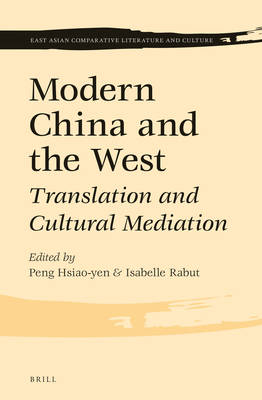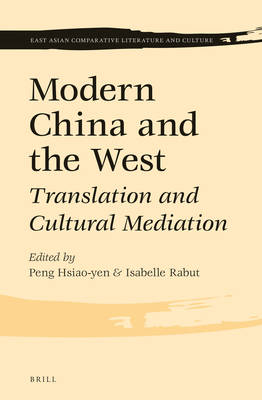
- Afhalen na 1 uur in een winkel met voorraad
- Gratis thuislevering in België vanaf € 30
- Ruim aanbod met 7 miljoen producten
- Afhalen na 1 uur in een winkel met voorraad
- Gratis thuislevering in België vanaf € 30
- Ruim aanbod met 7 miljoen producten
Zoeken
Modern China and the West
Translation and Cultural Mediation
€ 286,95
+ 573 punten
Omschrijving
In Modern China and the West: Translation and Cultural Mediation, the authors investigate the significant role translation plays in the act of cultural mediation. They pay attention to transnational organizations that bring about cross-cultural interactions as well as regulating authorities, in the form of both nation-states and ideologies, which dictate what, and even how, to translate. Under such circumstances, is there room for individual translators or mediators to exercise their free will? To what extent are they allowed to do so?
The authors see translation as a "shaping force." While intending to shape, or reshape, certain concepts through the translating act, translators and cultural actors need to negotiate among multifarious institutional powers that coexist, including traditional and foreign.
Contributors include: Françoise Kreissler, Angel Pino, Shan Te-hsing, Nicolai Volland, Joyce C. H. Liu, Huang Ko-wu, Isabelle Rabut, Xiaomei Chen, Zhang Yinde, Peng Hsiao-yen, Sebastian Hsien-hao Liao, and Pin-chia Feng.
The authors see translation as a "shaping force." While intending to shape, or reshape, certain concepts through the translating act, translators and cultural actors need to negotiate among multifarious institutional powers that coexist, including traditional and foreign.
Contributors include: Françoise Kreissler, Angel Pino, Shan Te-hsing, Nicolai Volland, Joyce C. H. Liu, Huang Ko-wu, Isabelle Rabut, Xiaomei Chen, Zhang Yinde, Peng Hsiao-yen, Sebastian Hsien-hao Liao, and Pin-chia Feng.
Specificaties
Betrokkenen
- Uitgeverij:
Inhoud
- Aantal bladzijden:
- 374
- Taal:
- Engels
- Reeks:
- Reeksnummer:
- nr. 2
Eigenschappen
- Productcode (EAN):
- 9789004270237
- Verschijningsdatum:
- 7/03/2014
- Uitvoering:
- Hardcover
- Formaat:
- Genaaid
- Afmetingen:
- 163 mm x 239 mm
- Gewicht:
- 703 g

Alleen bij Standaard Boekhandel
+ 573 punten op je klantenkaart van Standaard Boekhandel
Beoordelingen
We publiceren alleen reviews die voldoen aan de voorwaarden voor reviews. Bekijk onze voorwaarden voor reviews.







